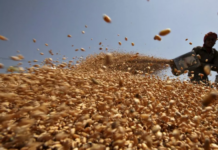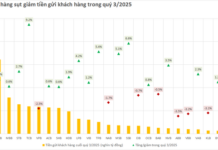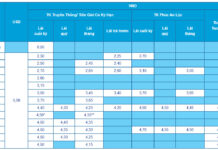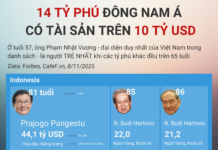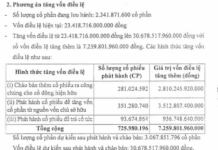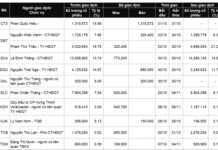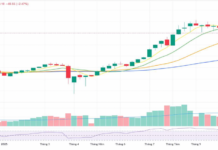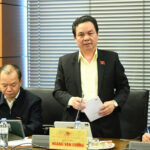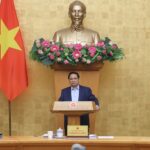The Vietnamese National Assembly has been abuzz with discussions on the draft amendment to the Personal Income Tax Law, which includes a government proposal to impose a 0.1% tax on gold bar transactions.

In response to questions about the necessity and potential impacts of taxing gold transactions, Mr. Shaokai Fan, Managing Director for Asia-Pacific (excluding China) and Global Central Bank at the World Gold Council (WGC), emphasized that any tax solution implemented in Vietnam should aim to achieve two key objectives. First, it should minimize speculative activities, and second, it should prevent market distortions such as smuggling or the shift of transactions from formal to informal or black markets to evade taxes.
Therefore, Mr. Shaokai Fan recommends that reasonable measures be taken when implementing gold transaction tax policies. If Vietnam imposes taxes on gold, it must consider the potential for cross-border gold flows due to tax disparities between countries.
Regarding the gold trading platform currently under study by the State Bank of Vietnam, Mr. Shaokai Fan noted that establishing a centralized gold trading platform is a significant step. However, he stressed the importance of clearly defining the platform’s objectives.
“If the centralized gold trading platform is designed to facilitate the domestic gold market’s operations, enhance transaction transparency, and support the development of an international financial center, then this mechanism should be implemented,” he emphasized.
“Ho Chi Minh City is being positioned by the government to become an international financial center. I believe numerous reforms and market liberalization measures are necessary before the gold trading platform can become a reality,” Mr. Shaokai Fan advised.
Unveiling the Critical Factors Influencing Gold Prices
This morning (November 8th), domestic gold prices unexpectedly held steady around the 148 million VND per tael mark. Experts reveal key factors influencing gold prices in the coming period.
International Financial Hub: Localizing Innovation, Not Replicating It
Vietnam’s ministries, agencies, and localities are working diligently to finalize the legal framework and infrastructure necessary for the country’s International Financial Center to commence operations in November. Experts emphasize that while Vietnam has the advantage of learning from international experience, it must focus on localization rather than mere replication.
If Saved Assets Are Also Taxed, Then…
“Taxation on savings raises significant concerns, especially when considering the broader implications. While a 0.1% tax rate may seem negligible, it warrants careful scrutiny. As Representative Hoàng Văn Cường highlights, the cumulative effect of buying and selling incurs a 2.5% loss for individuals. Conversely, speculators who frequently trade land for profit only pay 2%, creating an evident disparity. This inequity demands attention and reevaluation.”




